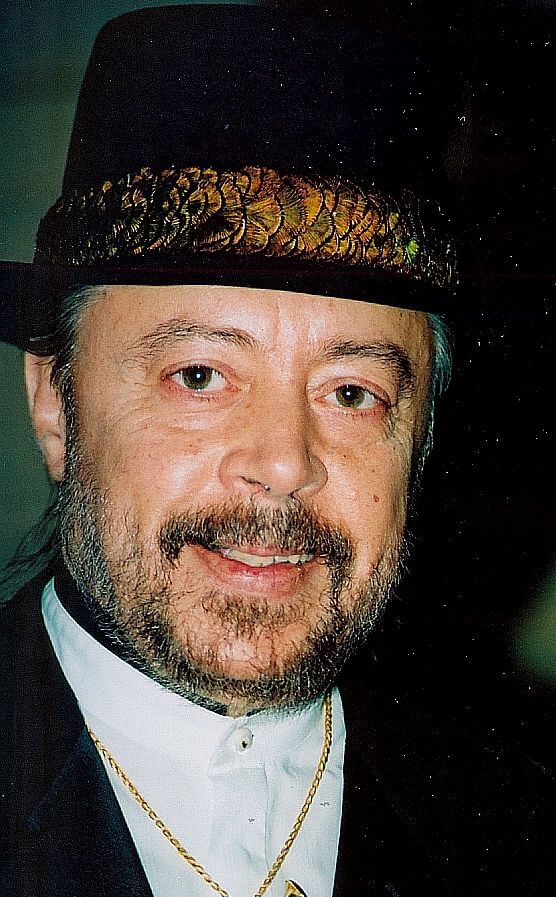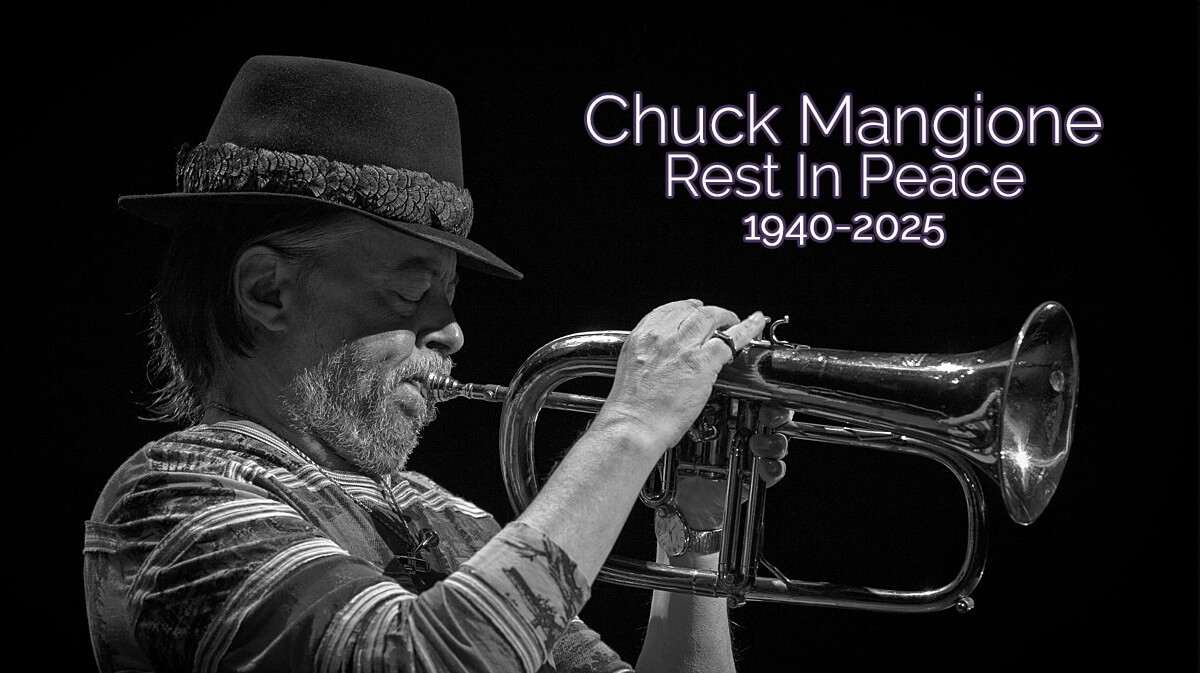
Chuck Mangione, the two-time Grammy Award-winning jazz musician whose infectious instrumental hit "Feels So Good" became one of the most recognizable tunes of the late 1970s, died peacefully in his sleep at his Rochester, New York home on Tuesday, July 22, 2025. He was 84 years old.
The news was confirmed Thursday by the Bartolomeo & Perreto Funeral Home and Mangione's attorney, Peter S. Matorin of Beldock Levine & Hoffman LLP. According to his manager, Mangione died from natural causes, marking the end of a remarkable 60-year career that saw him bridge the gap between sophisticated jazz artistry and mainstream pop culture appeal.
From Rochester Roots to Jazz Royalty
Born Charles Frank Mangione on November 29, 1940, in Rochester, New York, to an Italian-American family, Chuck discovered his musical calling early. Starting piano lessons at age 8, he switched to trumpet after being inspired by the 1950 film "Young Man With a Horn." This decision would ultimately reshape not only his life but the sound of American jazz.
Growing up in a household where jazz was king, Mangione's parents regularly invited musical legends to dinner, including Dizzy Gillespie, Carmen McRae, and Art Blakey. These early encounters with jazz royalty would prove formative, with Gillespie becoming such a mentor that he eventually gave teenage Chuck one of his trademark upswept trumpets.
While still in high school at Benjamin Franklin High School, Chuck formed his first professional group, the Jazz Brothers, with his pianist brother Gap. The duo's talent was so evident that Cannonball Adderley recorded one of Chuck's early compositions, "Something Different," on his 1961 album "African Waltz."
Eastman Education and Early Success
After graduating from the prestigious Eastman School of Music in 1963, Mangione joined Art Blakey's Jazz Messengers, filling the trumpet chair previously held by jazz legends Clifford Brown, Freddie Hubbard, Kenny Dorham, Bill Hardman, and Lee Morgan. This prestigious position established his serious jazz credentials and connected him with future collaborators Keith Jarrett and Chick Corea.
"Art was looking around for a horn player and he called Dizzy Gillespie," Mangione later recalled. "Dizzy said, 'Do you remember that kid from Rochester, NY?' and he recommended me to play with him. That was a great time because in that group was Keith Garrett and Chick Corea."
From 1968 to 1972, Mangione returned to Eastman as director of the jazz ensemble, becoming the school's first faculty director of the Eastman Jazz Orchestra and helping establish the institution's renowned jazz program.
The Birth of a Phenomenon
Mangione's solo career took flight with his 1970 album "Friends & Love… A Chuck Mangione Concert," recorded at Rochester's Eastman Theatre with the Rochester Philharmonic Orchestra. The album earned him his first Grammy nomination and included "Hill Where the Lord Hides," which marked his debut on the Billboard Hot 100.
His breakthrough came with the 1976 album "Bellavia," named in honor of his mother, which won him his first Grammy Award for Best Instrumental Composition. But it was his next creation that would make him a household name across America.
Released in December 1977, "Feels So Good" became an unlikely pop phenomenon. The full album version ran nearly 10 minutes, but what Mangione called "major surgery" created a radio-friendly 3:31 edit that climbed to No. 4 on the Billboard Hot 100 and spent 25 weeks on the chart. The song was nominated for Record of the Year at the Grammy Awards and topped the adult contemporary chart.
"It identified for a lot of people a song with an artist, even though I had a pretty strong base audience that kept us out there touring as often as we wanted to, that song just topped out there and took it to a whole other level," Mangione told the Pittsburgh Post-Gazette in 2008.
Olympic Glory and Mainstream Recognition
The success of "Feels So Good" led to perhaps Mangione's most prestigious commission: composing and performing "Give It All You Got," the theme song for the 1980 Winter Olympics in Lake Placid, New York. He performed the anthem live during the closing ceremonies to a global television audience of several hundred million viewers, forever linking his music with the "Miracle on Ice" U.S. hockey team's gold medal victory.
Earlier, his composition "Chase the Clouds Away" had been featured at the 1976 Summer Olympics in Montreal, establishing Mangione as the rare musician trusted to soundtrack America's Olympic moments.
His second Grammy came in 1979 for Best Pop Instrumental Performance for "The Children of Sanchez" soundtrack, which also earned him a Golden Globe nomination. The title song's full version stretched nearly 15 minutes and showcased his ability to blend jazz sophistication with cinematic sweep.
King of the Hill Fame
While many artists struggle to remain relevant across generations, Mangione found an unexpected second act in animated television. Beginning in 1997, he appeared as himself on Fox's "King of the Hill," playing a celebrity spokesperson for the fictional Mega Lo Mart where "shopping feels so good." His self-deprecating humor and willingness to poke fun at his own image endeared him to a new generation of fans.
"Eight months before 'King of the Hill' was on television, I received the script from them, describing my role as the spokesman for 'Megalo-mart,'" Mangione explained to Celebrity Cafe. "My character would do things like play 'Taps' and switch right into 'Feels So Good.' I figured that since they were playing my music and to such a large audience, why not?"
He appeared in more than half a dozen episodes and even scored music for a 1998 Valentine's Day episode. His affection for the show was so great that he named a song on his 2000 album "Everything for Love" after the character Peggy Hill.
The Flugelhorn Virtuoso
While Mangione played trumpet throughout his career, it was his mastery of the flugelhorn—a brass instrument similar to a trumpet but with a wider, more conical bore that produces a warmer, more mellow tone—that became his signature. His distinctive sound, combined with his recognizable appearance featuring long hair and a brown felt hat with a feathered band, made him instantly identifiable to audiences worldwide.
The hat became so iconic that Mangione later donated it to the Smithsonian Institution's National Museum of American History in 2009, along with the score to "Feels So Good" and other memorabilia from his illustrious career.
A Life of Music and Mentorship
Beyond his commercial success, Mangione remained committed to education and nurturing young talent. He regularly incorporated high school bands into his performances and scheduled children's matinee concerts where young audience members could bring their instruments and join him on stage.
"Chuck's love affair with music has been characterized by his boundless energy, unabashed enthusiasm, and pure joy that radiated from the stage," his family said in a statement. "His appreciation for his loyal worldwide fans was genuine as evidenced by how often he would sit at the edge of the stage after a concert for however long it took to sign autographs for the fans who stayed to meet him and the band."
Throughout his career, Mangione released more than 30 albums and earned 14 Grammy nominations. He also composed themes for films including "The Cannonball Run" (1981) and continued performing well into his 80s, often at benefit concerts supporting causes close to his heart.
Industry Tributes Pour In
News of Mangione's passing prompted an immediate outpouring of tributes from the music community and his hometown of Rochester. Marc Iacona and John Nugent, co-producers of the Rochester International Jazz Festival, said: "We are deeply saddened by the passing of Chuck Mangione, a legendary musician whose sound helped define a generation and whose roots run deep in Rochester. His music brought joy to millions, but for those of us who grew up here, Chuck was more than a global icon. He was one of our own."
Barry Vee (@BarryVee) - X/Twitter - July 24, 2025: "Sad news to report. I have learned that Rochester's own Chuck Mangione passed away in his sleep earlier this week at 84. He won Grammy's in 1977 & 1979 & was a jazz icon. I saw him many times & was at his induction ceremony into the Rochester Music Hall of Fame. RIP." Post includes photo of Mangione
Rochester International Jazz Festival (Marc Iacona & John Nugent) - Statement: "We are deeply saddened by the passing of Chuck Mangione, a legendary musician whose sound helped define a generation and whose roots run deep in Rochester. His music brought joy to millions, but for those of us who grew up here, Chuck was more than a global icon. He was one of our own."
Bob Sneider, an Eastman Jazz faculty member who toured with Mangione, remembered him as "a larger-than-life composer, trumpet and flugelhorn player, band-leader, recording artist and mentor. He inspired generations of kids to play instruments in a variety of musical styles. Chuck was instrumental in growing the jazz department at the Eastman School of Music."
Local Rochester broadcaster Barry Vee, who attended Mangione's induction into the Rochester Music Hall of Fame in 2012, tweeted: "Sad news to report. I have learned that Rochester's own Chuck Mangione passed away in his sleep earlier this week at 84. He won Grammy's in 1977 & 1979 & was a jazz icon. I saw him many times & was at his induction ceremony into the Rochester Music Hall of Fame. RIP."
A Lasting Legacy
Chuck Mangione's impact on American music extends far beyond his commercial success. He proved that jazz could be both artistically sophisticated and accessible to mainstream audiences, paving the way for the smooth jazz movement that followed. His willingness to embrace popular culture, from Olympic ceremonies to animated television, demonstrated how serious musicians could engage with mass media without compromising their artistic integrity.
In a 1980 issue of Current Biography, "Feels So Good" was called "the most recognized tune since 'Michelle' by The Beatles"—a testament to Mangione's unique ability to create instrumental music that transcended genre boundaries and connected with listeners across all demographics.
Mangione is survived by his brother Gap, with whom he shared not only the stage but a lifetime of musical collaboration. His Rochester home will undoubtedly continue to echo with the warm, inviting tones of the flugelhorn that made the world "feel so good" for nearly six decades.
As fans around the world mourn the loss of this gentle giant of jazz, Chuck Mangione's music remains a reminder that the best art doesn't just entertain—it brings joy, builds bridges between communities, and creates lasting memories that span generations. His melodies will continue to soundtrack moments of celebration, reflection, and simple human connection for years to come.
Sources: Fox News, TMZ, CNN, Variety, Rochester First, Spectrum News, Associated Press






